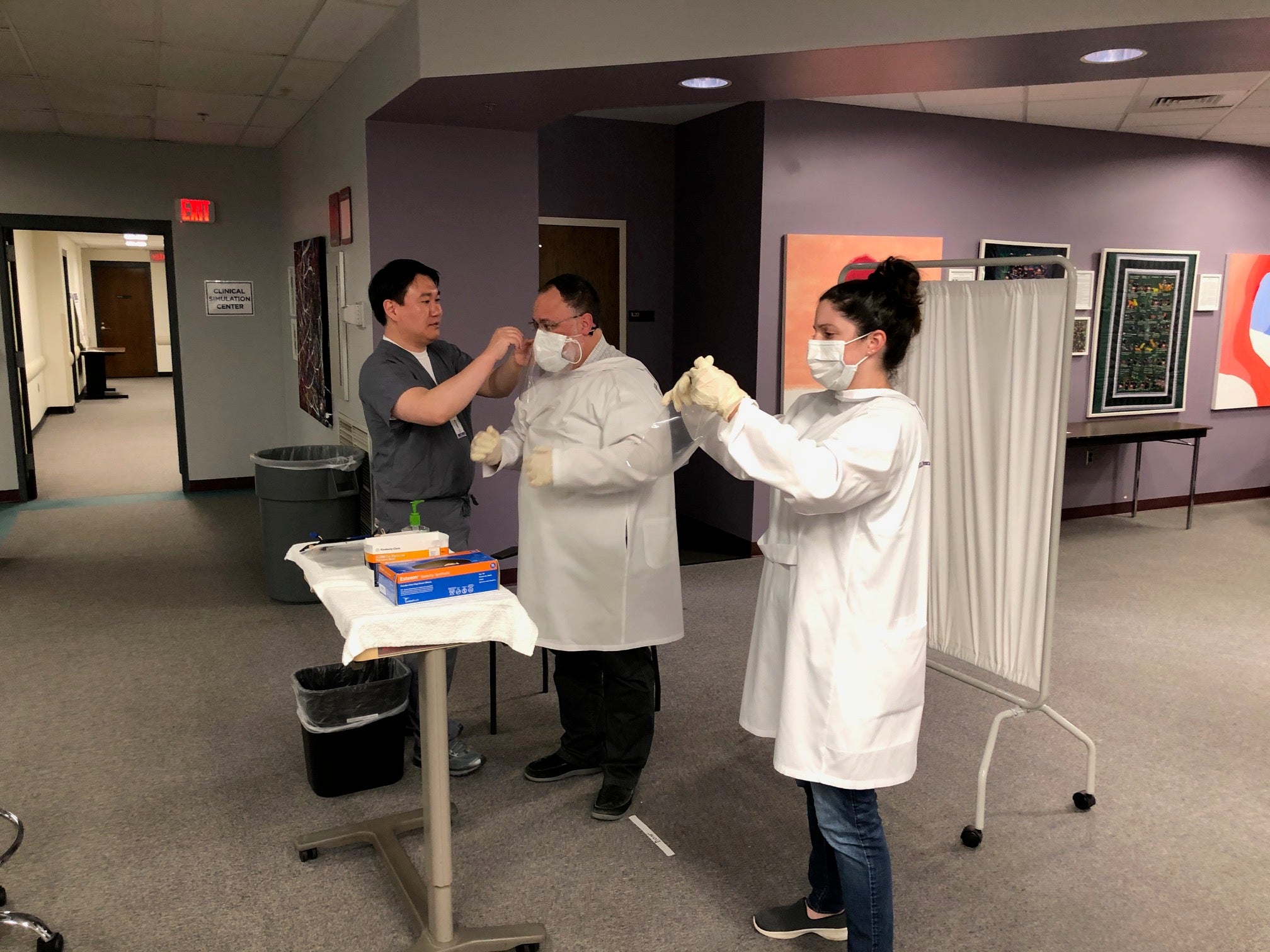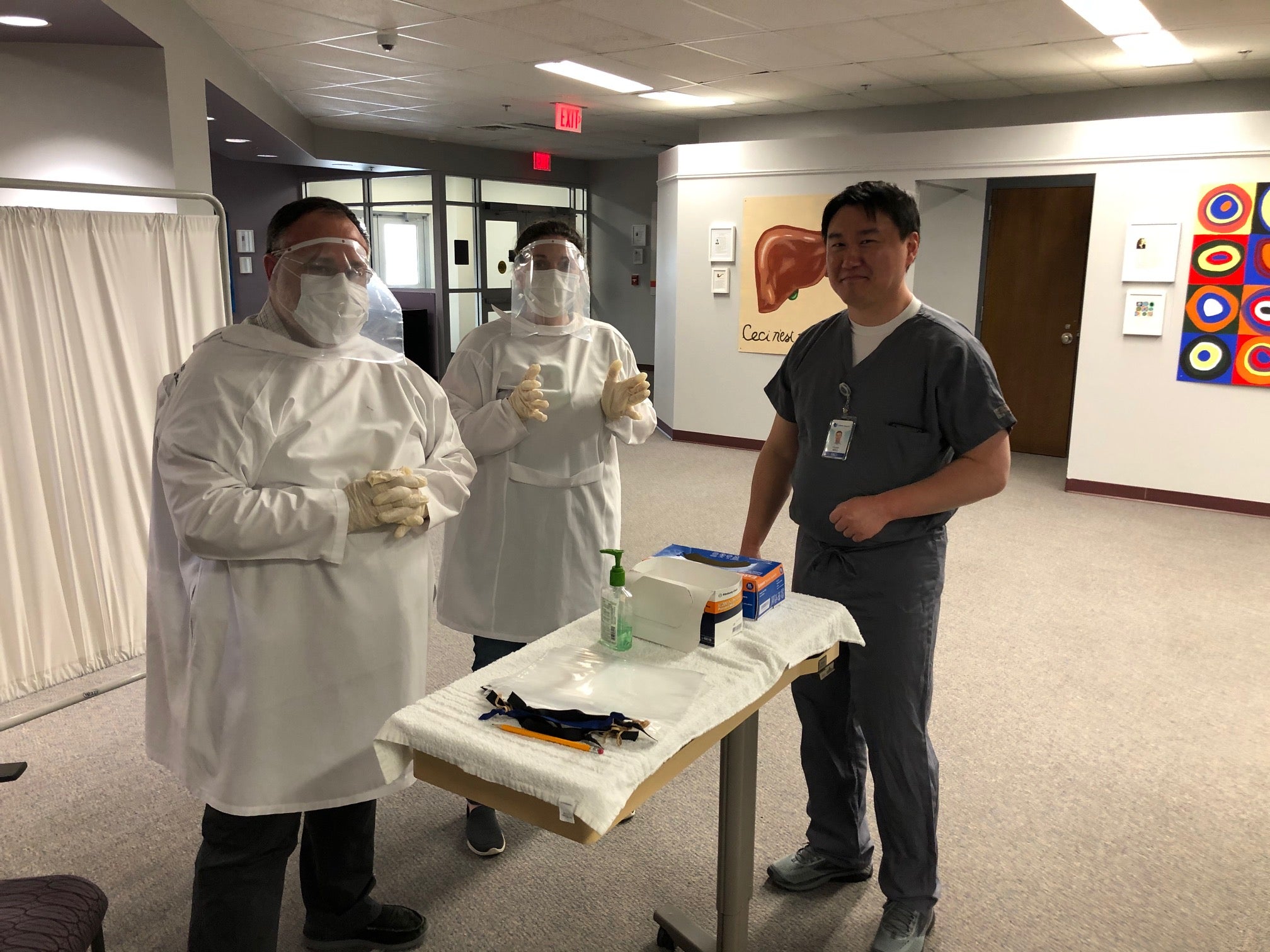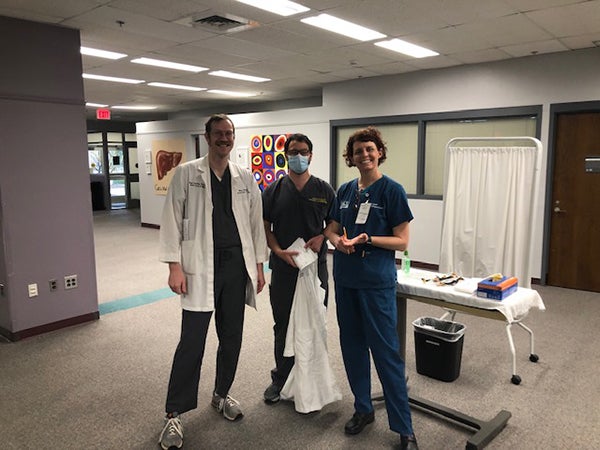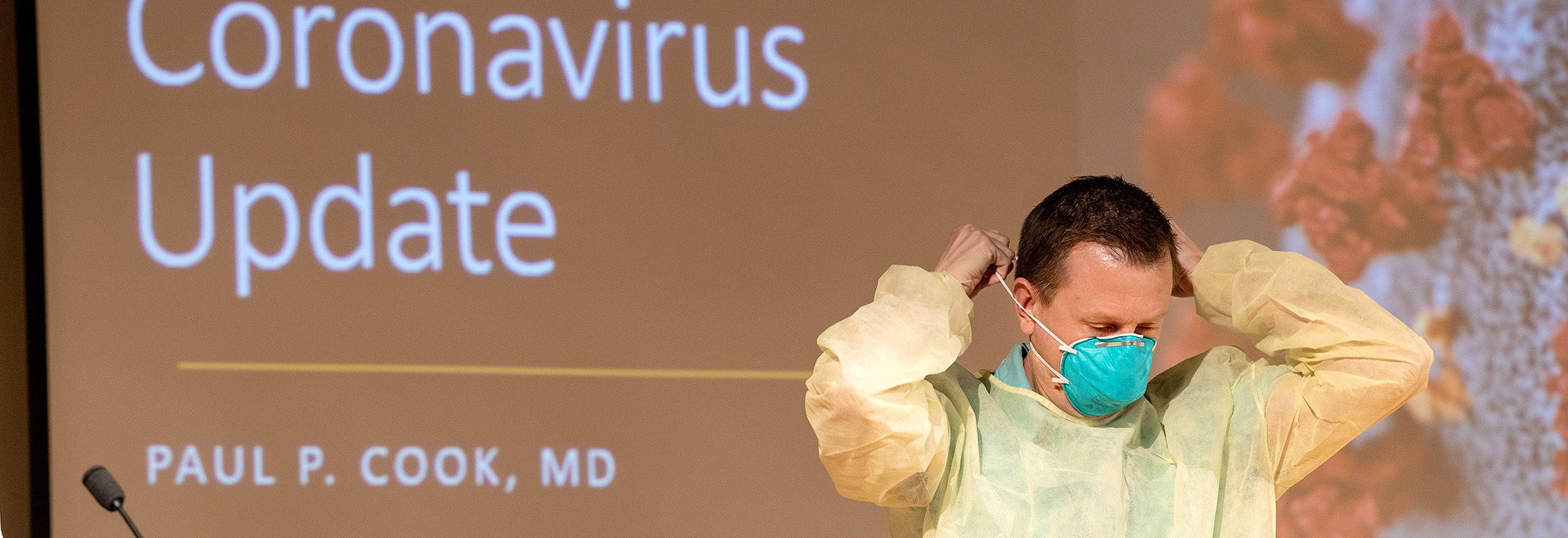SAFETY SKILLS
Brody trainings give medical workers refresher on safety gear
As health care providers across the country begin testing and caring for patients with COVID-19 symptoms, they must balance providing patients with reliable care while keeping their staffs healthy. Protective gear is essential. At the Brody School of Medicine, clinical faculty as well as Vidant Medical Center residents and fellows are refreshing their skills on how to properly wear safety gear, known as personal protective equipment (PPE).
Brody’s Interprofessional Clinical Simulation Program and ECU emergency medicine provided the simulation-based PPE training, which included a skills checklist review and instructional video followed by hands-on practice. Family medicine residents, emergency medicine residents and ECU clinical faculty who are members of the Vidant COVID-19 team attended the sessions. The COVID-19 team is prepared to work directly with coronavirus patients.

Dr. Yuxuan Mao of the Department of Internal Medicine reviews PPE skills with ECU internal medicine and family medicine faculty. (Contributed photo)

Dr. Yuxuan Mao of the Department of Internal Medicine reviews PPE skills with ECU internal medicine and family medicine faculty. (Contributed photo)

Dr. Jennifer Bennett of ECU emergency medicine works with resident physicians to refresh their skills on how to properly wear safety gear. (Contributed photo)
“This collaborative, on-demand, simulation-based activity during this COVID-19 health crisis aligns with our mission to promote excellence in clinical care while emphasizing patient, learner, and health care provider safety,” said Dr. Walter “Skip” Robey, assistant dean of academic affairs simulation and safety at Brody.
There is a national shortage of personal protective equipment, and hospital systems in North Carolina have asked for public donations of gloves and masks.
To preserve equipment, trainings at Brody utilize alternative PPE materials, said Becky Gilbird, director of clinical simulation. Gilbird received her master’s degree in public health from ECU in 2010.
Face shields were made out of page protectors, rubber bands and ribbon. Participants wore their white lab coats backwards as gowns, used surplus extra-large disposable gloves and regular surgical masks in place of N95 respirators, which are a special type of mask that filters airborne particles. Other trainings have used coffee filters in place of surgical masks, Gilbird said.
